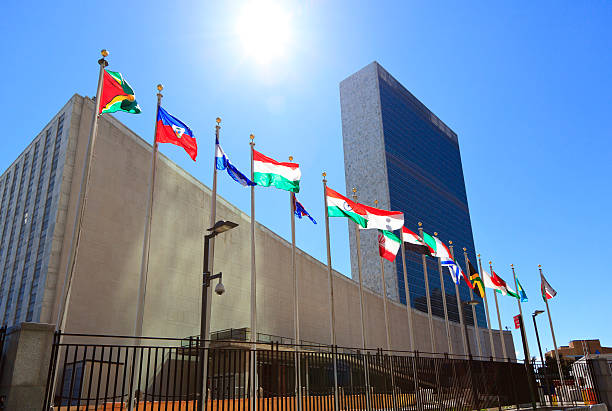London/New York, September 8 – A new survey conducted by prominent academic schools showed public support for more United Nations authority on its member states over issues of security, and climate and economic challenges.
Academics at the London School of Economics and Political Science (LSE), the University of Oxford, Lund University in Sweden and Griffith University in Australia conducted the survey (March-June 2019) in Argentina, China, India, Russia, Spain and the United States.
Of the six countries, China, Russia and the US are permanent members of the UN Security Council; China and India are the world’s most populous countries and the US and China are the world’s top economies.
Dr Mathias Koenig-Archibugi from LSE, who co-authored the paper on the survey’s findings, said, “Publics around the world are often portrayed as hostile to international institutions and keen to loosen constraints on national leaders. Our survey disproves that perception. Far from supporting attempts to weaken and undermine the U.N,. they want this global organisation to have more power to address today’s security, environmental, and economic challenges. But they also want to choose who represents them at the centre of the U.N. rather than relying entirely on their governments for that.”
The United Nations is currently composed of 193 countries and its most important body is the UN Security Council, which has authority over global issues of peace and security and has 15 members: the US, Russia, China, the United Kingdom and France, which are permanent members, and 10 countries elected for two-year term each. The five permanent members, in addition to being nuclear powers, have veto power over decisions by the council that can affect all UN members. The other body is the UN General Assembly, composed of 193 members, holds legislative power.
Talks to reform the UN have been going on in over the last two decades. They have mainly focused, unsuccessfully, on expanding the size of the council membership and on curbing the veto power of the permanent members.
Following is a media release from the researchers: (see key findings from a new survey)
“There is widespread public support for increasing, or at least maintaining, United Nations (UN) authority over member states and for making its structures more directly representative of member state citizens.
“With the UN facing long-standing calls for structural and procedural reform and with the U.N. General Assembly due to discuss the reform of its institutions at its next plenary session on 13-27 September, this is a pressing issue.
“To gather public views on UN reform, the researchers conducted an international survey in six countries, representative of the general populations in terms of age, gender, and region.
“Respondents in Argentina, China, India, Russia, Spain, and the United States were asked to choose between different combinations of UN design features including decision procedures, the bindingness of decisions, enforcement capabilities, and sources of revenue. Survey options included design features expanding powers, limiting them, and maintaining the status quo.
“Overall, the researchers found that respondents supported strengthening or maintaining the current authority level of the UN, and making its structures more representative of the world population.
“For example, at the moment, UN decisions are binding on every UN member state only on matters of international peace and security. The survey showed respondents were supportive of making decisions binding on more areas including important security, environmental, and economic matters. In contrast, the option of making decisions binding only on those states that voluntarily accept them was the most unpopular proposal across all survey countries.
“On the issue of delegates, the researchers posed two reform proposals: a second chamber composed of directly elected representatives and one composed of national parliamentarians. Both proposals were received more positively by the public than the status quo where the highest decision-making bodies of the UN include only representatives from national executives. However, people clearly preferred a second chamber with directly elected representatives to one with national parliamentarians.
“The researchers found diverging views on reforms to be associated with home country characteristics such as membership status in the Security Council and personal political values such as cultural libertarianism versus traditionalism.
“In the paper, the researchers note: “Often the most popular option is not the one represented by the current UN.” On the whole, they find public opinion to lean toward the positions of those reformers who have advocated for the UN and related global institutions to move closer to supernationalist and cosmopolitan ideals.
They add: “Our findings are consistent with recent research that highlights the importance of institutional design features to public perceptions of the legitimacy of international institutions.”
For an Open Access copy of the article, please visit: https://academic.oup.com/isq/article/66/3/sqac027/6649353
United Nations correspondent journalists – United Nations correspondent journalists – United Nations correspondent journalists – United Nations journalism articles – United Nations journalism articles – United Nations journalism articles – United Nations News – United Nations News – United Nations News

